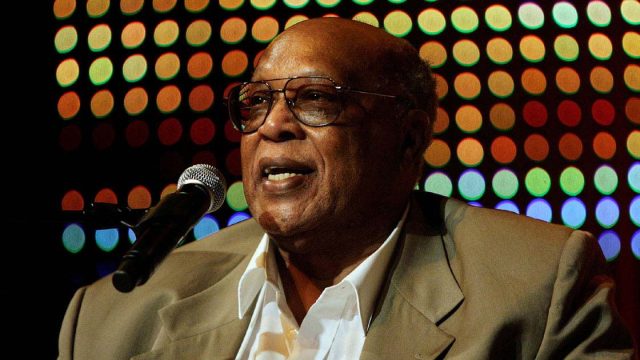Les McCann, Jazz Pianist, Vocalist And Composer, Dies At 88

Jazz pianist and singer Les McCann, best known for his impassioned protest song Compared To What from the 1969 Montreux Jazz Festival and later sampled heavily by hip-hop artists, died on Friday, 29 December at a Los Angeles-area hospital, according to a statement released by his longtime manager and producer Alan Abrahams.
McCann, 88, had been living in a Van Nuys nursing facility and was hospitalized with pneumonia, said Abrahams, who declined to identify the hospital. McCann had been a longtime Van Nuys resident, Abrahams said.
“He was one of the most influential pianists and singers of all time,” said Abrahams, who called McCann an architect of soul jazz. “When he played live, all over the world, people would be enthralled, because he never played it safe. He always took it to the edge and succeeded at it and took the audience with him. For younger people, they’re not making any more Les McCanns.”
McCann’s music has been sampled by Notorious B.I.G., Pete Rock and C.L. Smooth, Warren G., Slick Rick, Dr. Dre, Mobb Deep, A Tribe Called Quest, De La Soul and Naughty by Nature.
Les McCann was born September 23, 1935, in Lexington, Ky., Abrahams said. A largely self-taught musician, McCann joined the Navy in the 1950s and was stationed in California, where he patronized San Francisco’s jazz clubs, encountered trumpeter Miles Davis’ music and was strongly influenced by pianist Erroll Garner, according to his biography from the Kentucky Music Hall of Fame.
In 1956, he won a Navy talent contest as a singer and appeared on the Ed Sullivan Show. He moved to Los Angeles after being discharged, where he formed the Les McCann Ltd. trio and was signed by the L.A.-based Pacific Jazz label.
A prolific performer and collaborator, it was McCann’s appearance at the 1969 Montreux Jazz Festival in Switzerland with saxophonist Eddie Harris, and the ensuing live album Swiss Movement – released by Atlantic Records – secured McCann’s international notoriety and his place in the jazz canon. In the hit single Compared to What, a rollicking protest anthem against President Nixon and the Vietnam War, McCann sings, “The President, he’s got his war / Folks don’t know just what it’s for / Nobody gives us rhyme or reason / Have one doubt, they call it treason.”
One of McCann’s other major contributions to music happened offstage, at a Washington, D.C., nightclub, where he discovered up-and-coming singer Roberta Flack. Having seen Flack perform at Mr. Henry’s in Capitol Hill, he decided he needed to hook her up with his producer, Joel Dorn. Dorn soon signed Flack to Atlantic Records, and in 1969 they made First Take, the debut effort in a recording career that would bring her 18 Billboard-charting songs, four Grammy awards and 13 nominations and, at this year’s Grammys, lifetime achievement awards.
In 1995, Les McCann was slowed by a stroke while in tour in Zelle, Germany, that left him partially paralyzed, though he was able to continue performing afterward, focusing more on vocals.
“He was bold and a pioneer on so many levels,” Abrahams said, noting that the sampling of Les McCann’s music had extended his influence across generations. “The rap and hip-hop artists all knew, because they would do the deep dive into their parents’ LP bins.”

